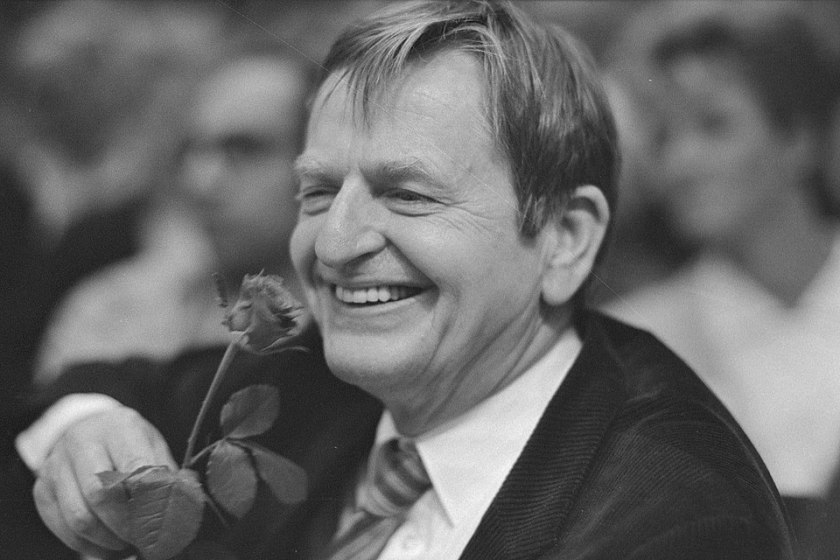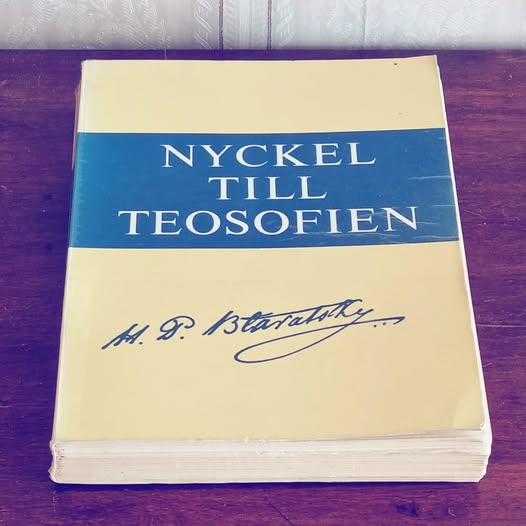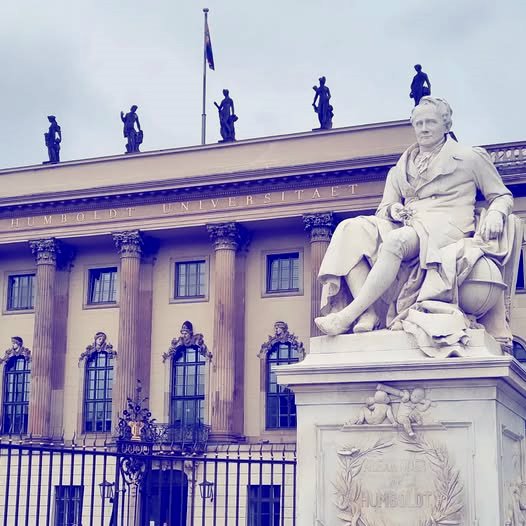A New World Emerges: Iran Will Win & Israel May Not Survive
Glenn Diesen intervjuar

Snart tre miljoner visningar.
A New World Emerges: Iran Will Win & Israel May Not Survive
Glenn Diesen intervjuar

Snart tre miljoner visningar.
Naturen var ett av de exempel på “överordnade värden” som Ambjörnsson gav i sin viktiga debattartikel om konservatismen 1984, ‘Konservatismen kunde spela en viktig roll’. Naturen var, m.a.o., en av de saker som vad jag med hänvisning till den artikeln började kalla en de överordnade värdenas konservatism på definierande sätt skulle värna. Den positiva roll en konservatism kunde spela var inte försvaret av högerns vanliga troglointressen, utan försvaret av dessa värden. Och denna typ av värdeförsvar var det enda intressanta även hos de debattörer som i den debatt Ambjörnsson här bidrog till företrädde högern, men vände sig mot dess nyliberala omorientering eller försökte få denna att framstå som förenlig med värdena.
Naturen, eller “miljön” (environgen, omvärlden?), borde lätt kunna förstås av alla som något som i den mest grundläggande och elementära mening måste konserveras, bevaras. P.g.a. högerns allmänna väsen är det dock på intet sätt självklart att koppla detta till vad som i den vanliga politiska debatten kallas konservatismen.
En av de få tänkare som både använt konservativ som självbeteckning och klart sett och tematiserat sambandet var Roger Scruton. Det huvudsakliga uttrycket för denna sida av hans tänkande är boken Green Philosophy: How to Think Seriously About the Planet, också tillgängligt på annat förlag under titeln How to Think Seriously About the Planet: The Case for an Environmental Conservatism, från 2012. Förlagets presentation ger en god sammanfattning av författarens inställning i miljöfrågorna:
“The environment has long been the undisputed territory of the political Left, which has seen the principal threats to the earth as issuing from international capitalism, consumerism and the over-exploitation of natural resources. In Green Philosophy, Scruton argues that conservatism is far better suited to tackle environmental problems than either liberalism or socialism. He shows that rather than entrusting the environment to unwieldy NGOs and international committees, we must assume personal responsibility and foster local sovereignty. People must be empowered to take charge of their environment, to care for it as a home, and to affirm themselves through the kind of local associations that have been the traditional goal of conservative politics. Our common future is by no means assured, but as Roger Scruton clearly demonstrates in this important book, there is a path that we can take which could ensure the future safety of our planet and our species.”
Problemen här har att göra med det förhållande som jag försökt formulera som att det inte finns någon Konservatismen i samma mening som en Liberalismen och en Socialismen. Givetvis finns många olika och varandra motsägande liberalismer och socialismer, men i det större perspektivet är både en Liberalismen och en Socialismen nödvändiga uttryck för historiens egen faktiska rörelse, vad vi än tycker om denna; för modernitetens eget väsen och egen dynamik, för långa århundraden av blodig revolution i vid mening. Vad som kallas Konservatismen är i motsats till dessa endast spridda fragmentariska försök att inom den orubbliga ramen för samma modernitet försvara element av det förmoderna eller av tidigare utvecklingsstadier av det moderna samhället, som mer eller mindre gått förlorade.
Konservatismen har därför alltid varit något som behövt artificiellt konstrueras i det icke-konservativa – och som icke-konservativt ideologiskt uttolkade – nuet, en produkt mot i stället för med eller av nuet och dess process, något som inte uppbärs av och representerar några i politiken eller ekonomin centrala, historiedrivande krafter och intressen. Vi kan här bortse från konservatismen som blott historiografisk kategori, men även som sådan är den oftast en nuets – eller en senare tids – rekonstruktivt-imaginativa retrojektion, och delar därmed i mycket egenskaperna hos Konservatismen som ideologi.
Dess betydelse och värde som ideologi i vid mening (den kom ju att kännetecknas av opposition inte bara mot vad som uppfattades som ideologierna utan även själva det nya ideologibegreppet som sådant) är ofta obestridliga, men graden av dess i den angivna meningen artificiellt-konstruktiva snarare än av historiens starkaste krafter naturligt nödvändiggjorda väsen utgör självklart också dess svaghet.
Scruton var, liksom exempelvis Russell Kirk i USA, en av dessa konstruktörer: han ägnade sitt liv åt att försöka få ihop en Konservatismen som en koherent och enhetlig politisk ideologi i och för nuet, och i långt större utsträckning än det av rent kronologiska skäl mer naturliga historiska mönstret Burke, som inte själv använde termen. Men det förhållandet att de uppnådde ett avsevärt mått av koherens och enhetlighet innebär inte, givet alla andra och annorartade sådana försök som också lyckades med detta, att resultatet kan accepteras som helt enkelt Konservatismen med stort K och i bestämd form singularis.
Det är detta ambitiösa, helhetliga projekt som sätter sin problematiska prägel på Scrutons sätt att hantera miljöfrågorna. För Scruton är Konservatismen självklart något som hör hemma inom högern; den är eller bör vara inte högerns ideologi, men definitivt dess filosofi, och han ser sig själv som en högerns filosofiske aktivist. Högern är hans oikos, oaktat all den riktiga kritik han kan rikta mot den i olika avseenden, och konservatismen som en dess komponent är, som framgår av hans många självbiografiska texter, hos honom i högsta grad ett personligt identitetsprojekt, änskönt det inte helt explicit beskrivs som sådant.
Därför måste den gröna konservatismen för Scruton vara en högerns politik, en del av det större högerpaketet. Men samtidigt måste detta omdefinieras för att kunna rymma den. Detta förklarar vad som är att beteckna som det uppenbart skeva i Scrutons gröna filosofi.
Givetvis har han viktiga poänger i sin kritik av storskaligheten och top-down-hanteringen i miljöfrågorna. Och den historiskt existerande socialismen har ju gemensamt med liberalismen ett uppenbart problematiskt modernitetsarv med hänsyn inte minst till naturen och environgen (ett arv som exempelvis Maupin, i sin kritik av den även i vänstern utbredda malthusianism som tar sig uttryck i degrowth-rörelsen, inte tillräckligt beaktar): enkel storskalig industrialisering framstod ju för den länge som ett självklart, oproblematiskt framstegs lösning på de flesta ekonomiska och materiella problem. Detta problemområde har oundvikligen blivit det centrala för vår tids olika ekomarxister.
Här har alltid funnits en viktig åtminstone potentiell, i verklig mening konservativ motvikt i den antikoloniala revolutionen: kulturerna på andra kontinenter kan bidra till att deras former av socialism inrymmer moment som balanserar och upphäver de naturdestruktiva sidorna i den ursprungligen rent västerländska moderniteten, och inte bara utgör en politiskt utvecklad förlängning av den borgerliga kapitalismens materiella logik. Ja, i långt högre grad än västvänstern kan de etablera den allmänna andliga traditionalismen som en integrerande del av en mänsklighetens framtida socialistiska samhälle och kultur.
De “unwieldy NGOs and international committees” Scruton vänder sig mot är i mycket präglade av dagens liberala kapitalvänster, som i grunden, på sitt eget sätt, är lika systemlojal som i realiteten Scruton. Ser vi till de gröna partierna har inte minst det tyska blivit en politisk skräckhistoria. Den globaliserade, imperialistiska kapitalismens övriga, centrala maktenheter är minst lika ofantliga och byråkratisk-centralistiska som den gamla socialismens strängdirigistiska regeringar, och, för den delen, givetvis på intet sätt oberoende av de staters centrala organisation och makt som de kontrollerar. Dessa enheter är ju grundbeståndsdelarna i det den principiella kapitalistiska anarkins irrationalitet aldrig avhjälpande typ av plansystem som, direkt eller indirekt, explicit eller implicit, är vad högern undantagslöst försvarar, fastän den i sin propaganda fortfarande tror sig kunna komma undan med att uppmåla endast “valfrihetens”, “marknadsekonomins” och “äganderättens” idyll.
I Britannien såväl som i USA borde det primärt vara dessa allt överskuggande systemrealiteter som identifieras som grönvärnets hinder och problem, och som dess arbete riktas mot. Scrutons förståelse av den Konservatismen som utgör hans intellektuella och personliga identitet och heltäckande livsprojekt omöjliggör tyvärr, och på för högerkonservativas hantering av de överordnade värdefrågorna karaktäristiskt sätt, det nödvändiga fokus på dem.
Så långt det sträcker sig är hans fokus viktigt och sympatiskt: “People must be empowered to take charge of their environment, to care for it as a home, and to affirm themselves through the kind of local associations that have been the traditional goal of conservative politics”. Det är obestridligen en viktig och värdefull del av naturfrågornas hantering. Att “globala problem kräver globala lösningar” blir ofta en alltför facil paroll, som dessutom i verkligheten kunnat dölja och befrämja helt andra intressens maktcentreringssträvan. Men så länge dessa andra intressen, så länge imperialismens globala megaföretag, fonder, banker, oligarker och köpta politiker är hela högersystemets essentiella determinanter är det helt enkelt inte möjligt att anta individuellt-personligt ansvar och odla lokalt självbestämmande i den utsträckning som är tillräcklig för de givna problemens lösning.
Grönheten är en dimension som inte tillräckligt kan konceptualiseras och förstås i vare sig vänsterns eller högerns termer. Men den måste vara central i en konservativ socialism. I själva verket utgör den och dess överordnade värde en dimension som entydigt visar nödvändigheten av just en konservativ socialism, där de båda leden, konservatismen och socialismen, på historiskt och teoretiskt nytt sätt korrigerar varandra.

I förgrunden Cyrillus Johanssons s.k. “Centrumhuset”.
Detta är inte det rätta tillfället att önska och att verka för regimförändring i Iran.
De västerländska kommunisterna av de flesta (inte alla) schatteringar som fanatiskt stött de senaste protesterna och deras krav fördömer nu i alla fall i överensstämmelse med sitt samtidiga motstånd mot amerikansk och israelisk intervention konsekvent atlantsionismens senaste krig.
Men detta kan inte dölja att de själva genom sin inopportuna regimkritik och sitt direkta kuppstöd bokstavligen och i vad gäller regimförändringens allmänna avsikt sida vid sida med Israel och USA bidragit till och befrämjat ett anfallskrig som uteslutande tjänar dessas destruktiva intressen. I ljuset av detta, som del av denna helhetliga hållning, ger även deras fördömande nu tyvärr mycket av samma ointelligenta intryck som deras tidigare pådrivande hets.
Inte heller spelar det i sammanhanget av det verkliga skeendet och dess innebörd någon roll vad många iranier och inte minst exiliranier säger, tycker och vill. Lika litet som deras motsvarigheter i fallet Syrien, fallet Libyen, fallet Irak (i fallet Gaza har de inga motsvarigheter). Ett annat styre i Iran är givetvis inte omöjligt, men om det ska bli ett bättre sådant krävs inte bara andra och primärt inhemska medel och mål, utan också och inte minst en annan tid, en annan världspolitisk situation, ett annat geopolitiskt läge. Ja, faktiskt troligen en politisk förändring i väst. Nu stöder ju de flesta oppositionella “demonstranterna” på det mest högröstat uppenbara sätt atlantsionisternas hegemonistiska regeringsalternativ, Pahlavi. Och det alternativet är helt enkelt inte bättre. Det är Epsteinimperiet.
Som Svante Nordin skrivit: “Kapitalism är som jag ser det inte något möjligt val. En värld med imperialistiska krig, med kolonialt förtryck, med massvält och massterror, endast fläckvis förgylld med ‘demokratiska fri- och rättigheter’, f.ö. högst prekära, kan inte vara ett alternativ. Den revolutionära process som pågår i världen och som kan kasta detta system över ända äger inte rum utan lidande eller ens utan brott och oförståelig grymhet. Men den utgör vårt hopp.”
Norton kämpar tålmodigt vidare i denna den verkliga konservativa revolutionens tjänst med upplysning om lögnerna kring Iran. “The US-Israeli war on Iran is based on lies”, skriker rubriken på hans senaste avsnitt av Geopolitical Economy Report. Men Catelina Johnstone reagerar på de senaste händelserna på ett sätt som korrekt indikerar de begränsningar i denna typ av arbete som nu med det alltigenom ohämmat kriminella i atlantsionismens härjningar börjar framträda. Ja, hur det under västtotalitarismens tilltagande tryck börjar svikta av nästan närmast stilistiska skäl:
“I don’t even know what to write about this one.
What am I supposed to say? ‘Hey everybody, they’re lying to us about this war’? Everyone already knows that. Even the people who support this war know all the justifications for it are lies.
They know Iran isn’t building nukes.
They know Iran poses no threat to the United States.
They know all that bullshit about Iran cutting out women’s wombs and murdering tens of thousands of protesters was evidence-free atrocity propaganda.
Nobody needs me to tell them these things. Nobody needs me to tell them that this war is going to kill a whole lot of innocent people and inflict unfathomable amounts of suffering upon our species, both directly during these attacks and indirectly in the chaos and instability ensuing thereafter. Everyone already knows this.
Everyone already knows this, and it’s happening anyway. They’re just doing whatever evil things they want to do, without the slightest regard for public opinion or consent.
They’re just going right ahead with a military operation to topple Tehran, after decades of inertia for fear of the horrific consequences it would unleash.
They’re just choking off Cuba using siege warfare, which previous presidents refused to do because it would be a monstrous act of war.
They just kidnapped the president of a sovereign nation, which previous administrations had refused to do because it’s plainly against international law.
They just helped Israel turn Gaza into a gravel parking lot and are now building a giant dystopian tech surveillance encampment to imprison the survivors.
They just designated an American company a ‘supply chain risk to national security’ for the first time ever because the AI firm Anthropic refused to let the Pentagon use its technology to operate autonomous killing machines and surveil American citizens – an open admission that the Pentagon plans on using AI to run autonomous killing machines and surveil American citizens.
There’s an old Frank Zappa quote that’s been popping into my head more and more lately:
‘The illusion of freedom will continue as long as it’s profitable to continue the illusion. At the point where the illusion becomes too expensive to maintain, they will just take down the scenery, they will pull back the curtains, they will move the tables and chairs out of the way and you will see the brick wall at the back of the theater.’
We’re seeing a lot more bricks lately.
That’s all I can think to say right now.”
Utan tvekan har Nortons typ av upplysning och det oändliga antalet andras som utfört samma arbete fyllt en helt nödvändig funktion. Men atlantsionismens politiska och mediala ledare låter sig ju alltså inte påverkas av det förhållandet att alla vet att det de säger är lögn och även vet att de själva vet det. Endast den som förmår leva med denna lögnuppsättning, denna helhetliga livslögn, som förmår bygga hela sitt yrkesmässiga och personliga liv på den, kan fungera som ledande politiker eller opinionsbildare i atlantväst.
När det gäller det andra Irakkriget som började 2003 har det i 20 år varit en allmänt accepterad självklarhet även i den amerikanska debatten att det var ett katastrofalt misstag baserat på lögn. Men inte ens det har kunnat hindra att man fortsatt med samma typ av krig på samma slags lögngrunder, och fått med sig det sjuka och korrupta Europa.
Därför finns också ett alltmer akut behov av att i större utsträckning gå vidare till en annan diskursiv nivå, i relation till den helhetliga problematik vi står inför. I förening med den allmänna historiska utvecklingen kommer det redan utförda upplysningsarbetet av Nortons och de många andra liknandes typ förvisso radikalt förändra de förhandenvarande globala realiteterna. Men till att börja med kan vissa rent analytiska dimensioner faktiskt tilläggas på olika områden, av den typ vi i anglosfären finner hos Mckay, Maupin, ACP och MWM. Och vidare visar den aktuella situationen att uppmärksamhet i högre grad också måste skänkas det tankearbete som ägnas den nödvändiga responsen i form av det praktiska, värdebaserat konservativa motståndets supplementära engagemang.
Avgörande är som alltid, givet de historiskt framvuxna maktförhållandena, vad som på den organisatoriska fronten händer i USA. Atlantimperiet måste avvecklas inifrån USA. Den nya passivitet vi idag ser hos befolkningen i jämförelse med Vietnamkrigets tid är ett resultat av långa neoliberala och neokonservativa årtionden av såväl spontan som avsiktlig och systematiskt planerad kulturkollaps och fördumning. Men den är inte hela bilden, och mer än bara undantag finns lyckligtvis, något som utan tvekan skulle visa sig om regimen kräver mer omfattande krigsinsatser från breda lager av befolkningen. En mycket stor majoritet motsätter sig entydigt det nya kriget. Och alla vet redan allt.
Veteranaktivisten Maupin är en av dem som starkast betonat nödvändigheten av den konkreta oppositionella nyorganisationen, och han har tillämpat sina insikter genom skapandet av sitt Center for Political Innovation. ACP är förstås ett annat exempel: ordförande Haz’ ord igår överensstämmer med Catelina Johnstones, men han pekar också kort på det pressande behovet av praktisk handlingsrespons från amerikaners sida av den typ han själv står för: nödvändigheten att tvinga Washington att höra oppositionen, på ett sätt som inte som hittills kan ignoreras:
“Nobody even believes the lies of the Epstein regime about why it attacks Iran. Not even the cattle cheering on this act.
The regime does whatever it wants, and doesn’t care what you think. It has full control over you. You pay tribute in taxes and interest payments.
In return, you are given video games, funkopops, and other slop. You sit down and shut the fuck up while the regime does whatever it wants with your country, resources, and wealth.
Some cheer on and support the regime’s actions, like a cuck cheers on their wife’s boyfriend. But in the end, they’re just watching like the rest. Their input is immaterial.
The only dignified, human thing you can do as an American is stand up and oppose this, in a way that Washington will be forced to hear.
This is the only act of independence you as a US citizen are capable of, the only act that proves you are a free man and not cuckold slave cattle.”
Det är alltså samma grupper och individer som samtidigt ytterligare lyfter den teoretiska analysen och går i spetsen för det aktiva och på olika sätt nyorganiserade motståndets gärning. Även på det senare, stora området kräver den nya historiska situationen mycket nytt tänkande, och verkligt sådant borde i längden inte kunna stoppas av de ofantliga resurser som står till repressionens förfogande. Oavsett vad som sker i framtiden har ju samma teknologi som kan tjäna mörkläggningen redan hunnit möjliggöra och vitt sprida den verkliga konservativa sannsynen och oppositionen.
Trots allt lever det av en minimal epsteiniansk oligarkelit styrda västetablissemanget med dess manageriella arméer i en propagandistisk-retorisk föreställningsvärld vars grad av medveten kollektiv falskhet gör att dess hegemoni i längden inte borde vara möjlig att upprätthålla. Man tycker att de många förhållanden och sammanhang man med alla medel utan framgång försöker dölja och förtränga rimligen till slut måste bli ohanterbara och överväldigande.
Endast om så sker, endast från den nya utgångspunkt som därmed ges, kunde västerlandet börja botas och så bevaras från Epsteinsystemet, och därmed också hela världen räddas undan mer, större och ytterligare förödande krig och ödeläggelse. Men det är inte säkert att denna räddning är möjlig. Atlantsionistoligarkin kan försöka i total nihilistisk depravation pressa vidare i Centralasien som del av omringningen av Ryssland och Kina, med syftet att angripa, förstöra och exploatera även dem och krossa allt övrigt kvarstående motstånd, inklusive västdissidensens. Det är vad de vill, och vad deras systems själva överlevnad ytterst kräver. Vi vet redan tillräckligt mycket om vilket samhälle och vilken kultur de vill ersätta dem med, sänka ned hela mänskligheten i. Och med vilka medel.
I det kosmiska perspektivet och evighetsperspektivet är en sådan Människorikets maximala epsteinianska, förenat plutarkiska, exoabrahamitiska och teknofascistiska mörkläggning ingenting. Men för dem som tänker leva i mänsklig form på jorden under, säg, det närmaste tusentalet år kan det, milt uttryckt, innebära dramatiskt försämrade möjligheter att göra så under fria och värdiga former och med den verkliga andliga utveckling som ytterst är den enda meningen och det enda värdet.
En variant av detta – i och för sig mindre sannolika – scenario är att de förenade globalplutarkerna och globalsionisterna dumpar ett i botten kört USA och i stället tar över Kina i dess nuvarande form som politisk och militär maktbas.
Men det mesta tyder på att det är för sent för något av detta. Mer sannolikt är att det förhandenvarande sioväst visar sig på sikt inte ha en chans mot större delen av den övriga mänskligheten. Dess globala våldsregims agerande och Trumps för en tidigare som civiliserad ansedd nation ofattbara skrävlande är redan ett uttryck för dess dekadens, försvagning och kanske tilltagande desperation. Trita Parsi rapporterar om hur det globala syd inte längre ger ett knull för Europa p.g.a. dess dubbelmoral, nu uttryckt i det skamliga stödet för det senaste kriget. I det scenario dessa fakta pekar mot kommer väst mötas av en övermäktig fientlig reaktion. Under en tid blir det även här krig. Kanske har ordförande Haz rätt. Atlantimperiet faller, och har bara sig självt att skylla – men mänskligheten räddas:
“The generation before Sayyed Khamenei were quietists. They only peacefully protested colonial rule.
But one day, the imperialists will miss Sayyed Khamenei and his Shahed drones even more than those now mourning him.
The next generation will be much fiercer than his.”
I Iran finns ingen alternativ regering som kan ta över, och det behövs inte just nu. Det är i väst det verkligen behövs. Ett nytt system. Men här finns det inte heller. Det är här vi måste skapa det. För vår egen och för hela världens skull.

“Idag minns vi Olof Palme. Det har gått 40 år sedan vår partiordförande och Sveriges statsminister mördades. Olof Palme stod upp och kämpade för frihet, jämlikhet och allas lika värde – och han fick med människor i sin rörelse. I en mörk värld är det viktigare än någonsin att stå upp mot auktoritära krafter så som han gjorde. Vi hedrar Palmes minne genom att fortsätta hans kamp – här i Sverige och runt om i världen.”
Så skriver Socialdemokraterna idag. Numera representerar de tillsammans med högern i verkligheten just de auktoritära krafterna i den mörka värld de talar om. Men Palme stod i alla fall upp och kämpade för alliansfrihet och fred, och i ett interkontinentalt perspektiv som hans efterträdare sedan länge inte ens tycks kunna förstå.
Fiona och Khaled från RCP, den brittiska sektionen av RCI, diskuterar i sitt program World on Fire Epstein som konstitutiv för och definierande det atlantimperialistiska systemet idag – det enda sätt på vilket fenomenet kan konsekvent analyseras och förstås utifrån ett de överordnade värdenas konservativa perspektiv.
Norton kort:
Ordförande Haz manar:
“Even if victory is impossible in coming elections, the creation of an incorruptible third electoral Party, people’s Tribune, would be a major achievement of the American people.
Within this coalition, a true internal battle of ideas and debate will be possible.
It’s not possible under the Duopoly. You can debate as much as you want, any given number of policies can be as popular as possible, and you can have the best ideas.
And you’re still going to face an Epstein ceiling – above the constitution, democracy, elections and popular sovereignty – a shadow regime that makes all the rules, sets the agenda, and has absolute control over the state.
Its agenda doesn’t need to be popular, persuasive, or rational to anyone. It’s an open and explicit dictatorship. Not even simply a typical capitalist dictatorship, but one that has the disposal of unconstitutional federal agencies, intelligence networks, total surveillance, and unlimited apparatuses of repression.
Before basing our political position on ideologies, opinions, and viewpoints, let’s first recognize that they objectively do not matter under the current regime, regardless of what they are.
We need a fundamentally new organ of political representation even to make the case for whatever views and opinions we happen to have.
Plenty of reformers and radicals have tried to change the two parties from within. It’s not possible.
Cancelation of debts, restoration of popular sovereignty, prosecuting corruption, and crushing the imperial, warmongering machine deserve to have a political platform.
It’s time to build a real third party coalition. While it’s still legal to!”

Det sena 1800-talets esoterism i väst, från vilken, i vissa former, Guénon utgick, men särskilt mot vars distinkt moderna västerländska inslag han inom kort kom att rikta en ingående kritik.
